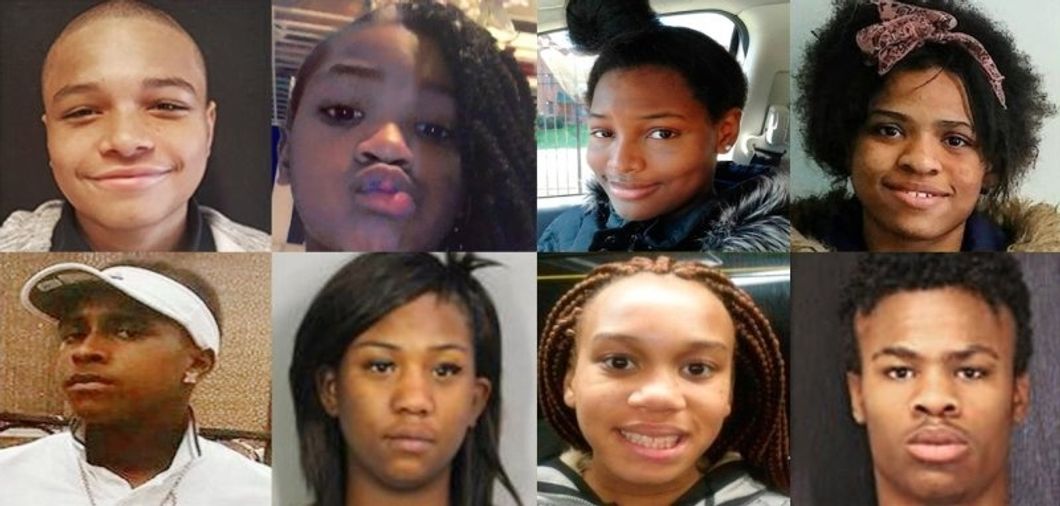As you are tuning into the news recently, you've probably heard coverage about the horrific winter storms hitting the Midwest or the latest big political controversy. While these topics can be newsworthy, there are other stories out there that do not get the recognition they deserve.
News broadcasters around America are missing something big — the thousands of black people missing in our country.
Sixty percent of the 800,000 people that go missing each year are black identifying. This is a huge number of people, yet it is getting minimal coverage in the media, with only 20 percent of these cases getting substantial media coverage.
One of the latest missing-persons cases involving a black American is the case of Taylor Rose Williams, a 5-year-old who went missing on November 6th in Florida. Another case out of California includes 2-year-old Arianna Fitts. While still missing, her case is partially solved, but not in the way you may expect. Her mother was found dead in McLaren Park days after Arianna was reported as missing.
There are thousands of cases similar to these. So why do black missing-persons cases go unnoticed in news media, when similar cases with white victims, such as Jayme Closs's, receive an outcry of coverage and support?
Every missing-persons case should elicit the same level of coverage and concern.
A major reason for little to no news coverage is because many young black people are believed to have run away from their families, rather than abducted. Sometimes the families rule this as the case, but it is not uncommon for police to declare the subject as a runaway before even getting all the details. Conclusively, Amber Alerts are not issued for these cases and therefore are not covered in the media.
With this action, members of the police force are considered to exhibit implicit bias, the unconscious advantage a person of privilege or power gives to others like them. This could be taken as blatant racism, considering the history of law enforcement and racism against black people. Natalie Wilson, the co-founder of the Black and Missing Foundation has this advice for friends and families of someone falsely ruled as a runaway: "If you believe your child did not run away, you just have to stand firm with law enforcement and let them know that this is uncharacteristic of your child."
The divide between the black community and law enforcement is another reason that many of these cases are simply nonexistent in media.
The distrust in police officers is rightfully justified within the black community. So, when a member of it goes missing, who is to call? It can feel like there is no hope when someone who is not trusted is assigned to solve the most important mystery in one's life. We've already discussed how police may tamper with evidence to make it appear the child is a runaway, so there is no telling what else they can do with their power.
Going off the path of missing black people, there could also be negative consequences tied to Latinx people reporting a missing person, such as deportation or being detained.
So, what can we do to spread awareness about all the cases of missing black people in America?
Of course, we are not all detectives or personal investigators. But many students like us can use our knowledge to advocate for these people. Criminology and social work students, to name a few, can understand the institutional racism that occurs in this country. It would not be a bad thing to use your voice to speak up when something doesn't seem right.
It's better to be safe than sorry.
Tweets and Facebook posts about missing people go viral all the time, and the least we can do is share, share, share. Even if you live in Michigan and the victim went missing from California, it's still worth it to share. It is uncomfortable to know how far a captor can get in such a short time period. Along with this, support organizations like Black Lives Matter and the Black and Missing Foundation. They thrive off of encouragement from others.
Finally, people, especially those in power, can take a step back and see how implicit bias affects them and those around them. It can be dangerous to some groups of people when they are constantly stereotyped, such as black youth assuming to have run away when they've been kidnapped, in actuality. Understanding and overcoming these negative unconscious thoughts can save someone at the end of the day.
"Why does this matter to me?" you may ask. It can happen to anyone. Someone you love, someone you know, maybe even you.





















